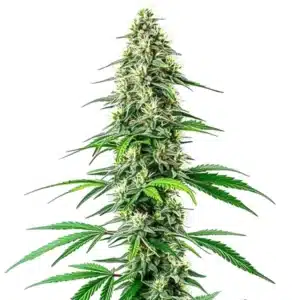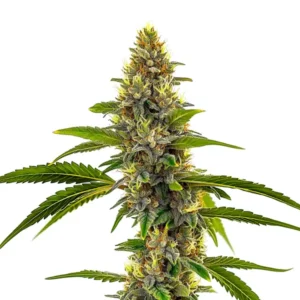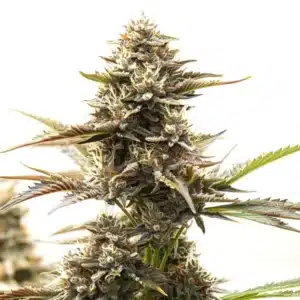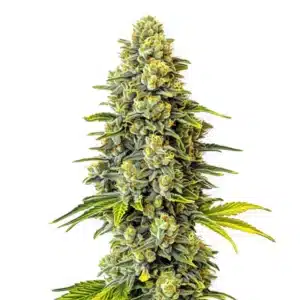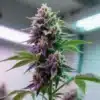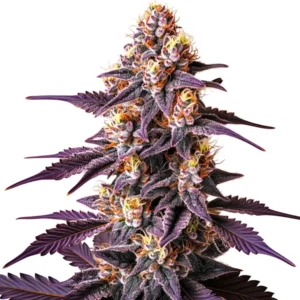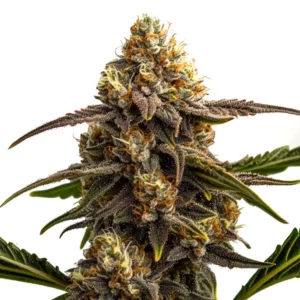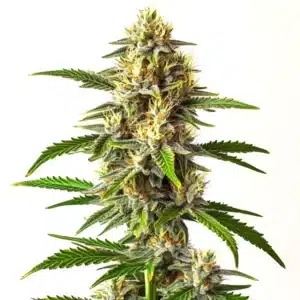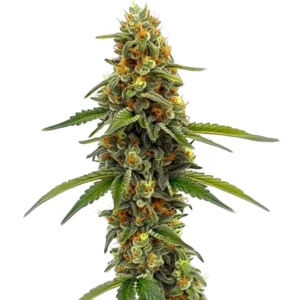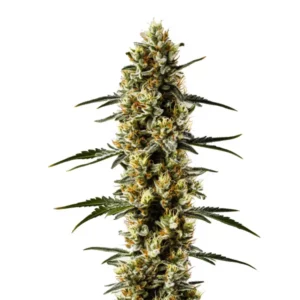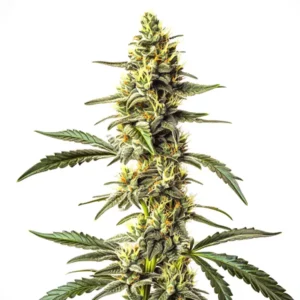
How Cannabis Oil Helps with Autism: Anxiety, Sleep & Behavior
Autism and Cannabis Oil
What Is Autism and How Does It Affect Individuals?
Cannabis oil treatment for autism, or Autism Spectrum Disorder (ASD), is a developmental condition that affects communication, behavior, and social interaction. People with autism may experience challenges in understanding social cues, processing sensory information, and managing emotions. The spectrum nature of the disorder means that symptoms vary widely, with some individuals requiring significant support while others live independently.
Common symptoms include repetitive behaviors, restricted interests, heightened sensitivity to stimuli, and difficulty with verbal and non-verbal communication. Many individuals with autism also experience anxiety, sleep disturbances, and aggression, making symptom management crucial for improving their quality of life.
Recommended Strains
CBD Black Diesel (1:1)
|
|
CBD | 6% – 8% (Low) |
|
|
Type | CBD Feminized |
|
|
Yield | High |
|
|
Phenotype | 40% Indica / 60% Sativa |
CBD Candyland
|
|
CBD | 5% – 7% (Low) |
|
|
Type | CBD Feminized |
|
|
Yield | Low |
|
|
Phenotype | 20% Indica / 80% Sativa |
Function of the Endocannabinoid System in Autism
The endocannabinoid system (ECS) is a regulatory network in the body that helps maintain balance in various functions, including mood, cognition, sleep, and immune response. The ECS consists of receptors (CB1 and CB2), endocannabinoids, and enzymes that break them down.
Research suggests that some individuals with autism may have an imbalanced ECS, which could contribute to the severity of their symptoms. Cannabinoids found in cannabis oil, such as cannabidiol (CBD) and tetrahydrocannabinol (THC), interact with the ECS, potentially helping to regulate mood, reduce anxiety, and support neurological function.
How Cannabis Oil Interacts with Autism Symptoms
Cannabis oil contains active compounds that influence neurotransmitter activity, inflammation, and brain signaling. CBD, the non-psychoactive compound in cannabis, has been studied for its potential to reduce stress, improve sleep, and enhance social interactions in individuals with autism. THC, the psychoactive compound, may have benefits in modulating sensory processing and reducing aggressive behaviors, but its use requires careful dosage control.
By targeting different receptors in the brain, cannabis oil may help alleviate some of the most challenging symptoms associated with autism, making it a potential complementary treatment for managing ASD.
Promos & Deals
Potential Benefits of Cannabis Oil for Autism
Can Cannabis Oil Help Reduce Anxiety and Stress?
Anxiety is a common challenge for individuals with autism, particularly in social situations. Research indicates that CBD has calming effects by influencing serotonin receptors in the brain. Many parents and caregivers report that cannabis oil helps reduce stress levels in autistic individuals, making it easier for them to engage in daily activities.
By promoting relaxation without sedation, CBD may offer a natural alternative to pharmaceutical medications often prescribed for anxiety in autism patients.
Managing Aggression and Behavioral Challenges with Cannabis Oil
Aggressive behaviors, including self-injury and outbursts, can be distressing for individuals with autism and their families. Studies suggest that cannabis oil, particularly CBD-rich formulations, may help regulate mood and reduce episodes of aggression. Some research indicates that CBD can lower cortisol levels, the hormone responsible for stress responses, potentially reducing impulsive and aggressive reactions.
For individuals with severe behavioral challenges, a combination of CBD and low-dose THC may offer additional benefits in calming the nervous system and improving impulse control.
CBD and THC in Sensory Processing and Communication
Sensory sensitivities are a hallmark of autism, with many individuals experiencing extreme reactions to sounds, lights, or textures. Cannabis oil may help modulate sensory processing by regulating neurotransmitter activity in the brain. CBD, in particular, has been linked to improvements in cognitive function and social engagement in children with autism.
While THC’s psychoactive effects require careful consideration, small doses may help individuals process sensory input more effectively, potentially enhancing their ability to communicate and engage with their environment.
Can Cannabis Oil Improve Sleep Patterns in Individuals with Autism?
Sleep disturbances are common in autism, often due to heightened anxiety and irregular melatonin production. Cannabis oil, especially CBD-dominant formulations, has shown promise in promoting better sleep by reducing nighttime restlessness and improving relaxation.
For individuals with autism who struggle with falling or staying asleep, cannabis oil may help regulate sleep-wake cycles, leading to more consistent and restorative rest.

Risks and Considerations of Using Cannabis Oil for Autism
Possible Side Effects and How to Manage Them
While cannabis oil is generally well-tolerated, some individuals may experience side effects such as:
- Drowsiness
- Changes in appetite
- Digestive issues
- Mild dizziness
- Mood alterations (with THC use)
To minimize side effects, starting with a low dose and gradually increasing based on individual response is recommended. Working with a healthcare provider ensures safe and effective usage.
Interactions Between Cannabis Oil and Autism Medications
Cannabis oil may interact with medications commonly prescribed for autism, such as antipsychotics, mood stabilizers, and anxiety medications. CBD can inhibit enzymes responsible for drug metabolism, potentially altering the effectiveness of these medications.
Before introducing cannabis oil into an autism treatment plan, it is essential to consult with a medical professional to prevent adverse interactions and determine appropriate dosages.
Finding the Right Dosage for Autism Symptom Management
There is no one-size-fits-all dosage for cannabis oil in autism treatment, as individual responses vary. Factors such as age, weight, symptom severity, and sensitivity to cannabinoids influence the appropriate dosage.
A common approach is to begin with a low CBD dose and adjust as needed. Some individuals may benefit from formulations containing small amounts of THC, but professional guidance is crucial in determining safe and effective dosing strategies.
Best Cannabis Oil Products for Autism Treatment
Full-Spectrum vs. Broad-Spectrum vs. CBD-Isolate Oils
Choosing the right type of cannabis oil is essential for optimal benefits. The main options include:
- Full-Spectrum Oil: Contains all cannabinoids, including THC, offering the entourage effect where compounds work synergistically.
- Broad-Spectrum Oil: Retains multiple cannabinoids but removes THC, ideal for those avoiding psychoactive effects.
- CBD-Isolate Oil: Contains only CBD, suitable for individuals with THC sensitivities or strict legal restrictions.
How to Choose a High-Quality Cannabis Oil for Autism
When selecting cannabis oil for autism treatment, consider the following factors:
- Source: Opt for organically grown hemp to avoid pesticide exposure.
- Third-Party Testing: Ensure the product has been tested for potency and purity.
- Extraction Method: CO2 extraction is preferred for maintaining cannabinoid integrity and avoiding harmful solvents.
- Label Transparency: Check for clear labeling of cannabinoid content and ingredient lists.
Recommended Consumption Methods for Autism Patients
Cannabis oil can be administered in different ways, depending on individual preferences and needs:
- Sublingual Drops: Fast-acting absorption under the tongue.
- Capsules: Pre-measured doses for convenience.
- Edibles: Longer-lasting effects but slower onset.
- Topicals: Used for localized symptom relief.
Each method has its benefits, and trial and error may be necessary to determine the most effective approach for each individual.

FAQs About Cannabis Oil Treatment for Autism
How long does it take for cannabis oil to show effects in autism?
The time it takes for cannabis oil to work depends on the method of consumption. Sublingual drops typically take effect within 15-45 minutes, while edibles can take 1-2 hours. Long-term benefits, such as improved behavior and reduced anxiety, may take weeks of consistent use.
Is cannabis oil safe for children with autism?
Many parents use CBD-dominant cannabis oil to help manage their child’s autism symptoms. While research suggests it is generally safe, consulting a pediatrician is essential. THC should be used cautiously, as it may have psychoactive effects that could impact brain development.
Can cannabis oil improve communication and social skills in autism?
Some studies suggest that cannabis oil, particularly CBD, may enhance social engagement and reduce anxiety in individuals with autism. While results vary, parents and caregivers report improvements in eye contact, verbal communication, and overall interaction.


